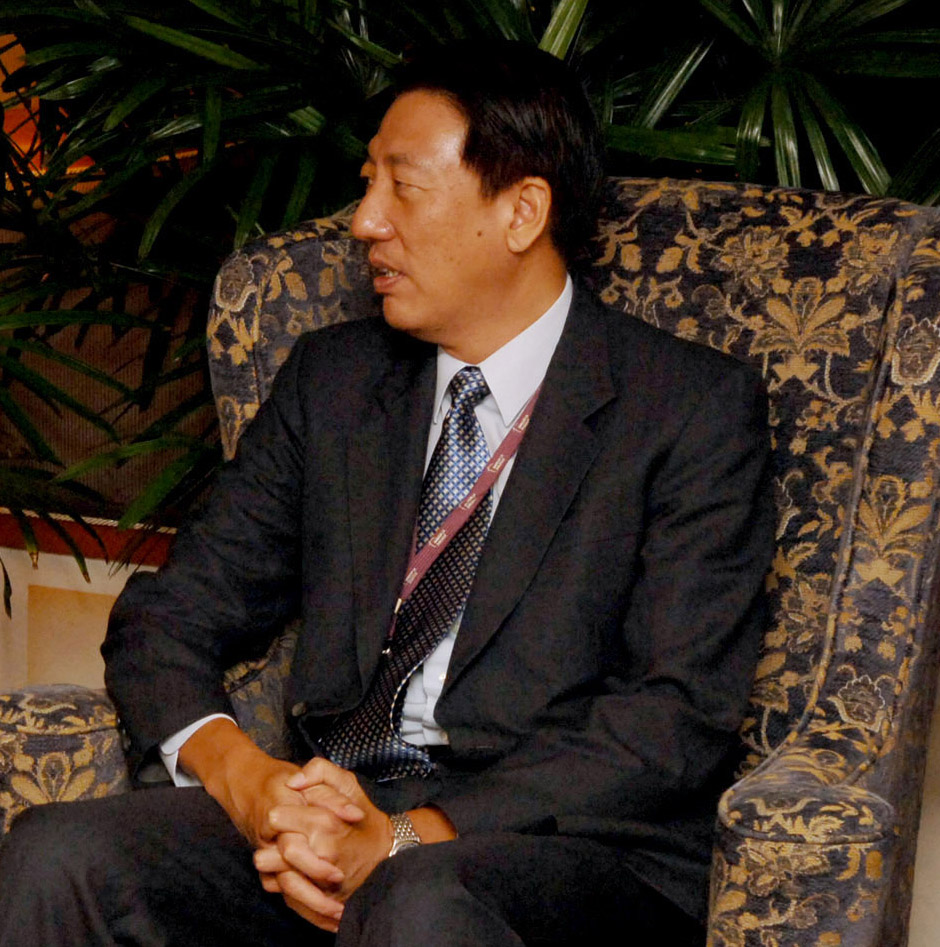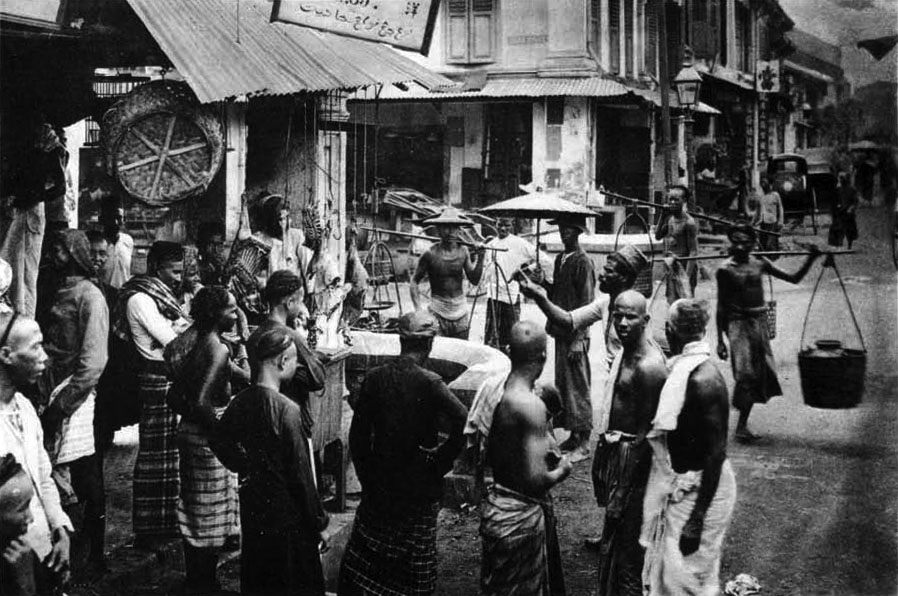|
Vincent Cheng (Singaporean Dissidents)
Vincent Cheng Kim Chuan (钟金全) is a Singaporean Catholic social worker who was detained under the Internal Security Act during the 1987 Operation Spectrum for three years. Controversy In 1987, Cheng was one of the 22 Singaporeans branded as a "Marxist conspirator" and arrested under Operation Spectrum. He was the last detainee to be released. On 1 January 1994, Amnesty International recognised him as a " prisoner of conscience." Cheng and his fellow detainees related some of their experiences, including physical torture, in the bookThat We May Dream Again published in 2009. Cheng has also recounted on his experiences in the blog Singaporerebel. The NGO Singaporeans For Democracy (SFD) wrote an official letter of inquiry to the Internal Security Department Internal Security Department may refer to: * Internal Security Department (Brunei) * Internal Security Department (Singapore) The Internal Security Department (ISD) is a domestic counter-intelligence and security a ... [...More Info...] [...Related Items...] OR: [Wikipedia] [Google] [Baidu] |
Internal Security Act (Singapore)
The Internal Security Act 1960 (ISA) of Singapore is a statute that grants the executive power to enforce preventive detention, prevent subversion, suppress organized violence against persons and property, and do other things incidental to the internal security of Singapore. The present Act was originally enacted by the Parliament of Malaysia as the Internal Security Act 1960 (No. 18 of 1960), and extended to Singapore on 16 September 1963 when Singapore was a state of the Federation of Malaysia. Before a person can be detained under the ISA by the Minister for Home Affairs, the President must be satisfied that such detention is necessary for the purposes of national security or public order. In the landmark case of ''Chng Suan Tze v. Minister for Home Affairs'' (1988), the Court of Appeal sought to impose legal limits on the power of preventive detention by requiring the Government to adduce objective facts which justified the President's satisfaction. Two months after the ... [...More Info...] [...Related Items...] OR: [Wikipedia] [Google] [Baidu] |
Operation Spectrum
Operation Spectrum, also known as the 1987 "Marxist Conspiracy", was the code name for a covert security operation that took place in Singapore on 21 May 1987. Sixteen people were arrested and detained without trial under Singapore's Internal Security Act (ISA) for their alleged involvement in "a Marxist conspiracy to subvert the existing social and political system in Singapore, using communist united front tactics, with a view to establishing a Marxist state." On 20 June 1987, six more people were arrested, bringing the total number of detainees to 22. The mostly English-educated group was a mix of Catholic lay workers, social workers, overseas-educated graduates, theatre practitioners and professionals. According to the Singapore government allegations, Operation Spectrum was conducted to "nip communist problem(s) in the bud". The mastermind behind the alleged Marxist plot was Tan Wah Piow, a former University of Singapore Students' Union president who had been in ''de fac ... [...More Info...] [...Related Items...] OR: [Wikipedia] [Google] [Baidu] |
Amnesty International
Amnesty International (also referred to as Amnesty or AI) is an international non-governmental organization focused on human rights, with its headquarters in the United Kingdom. The organization says it has more than ten million members and supporters around the world. The stated mission of the organization is to campaign for "a world in which every person enjoys all of the human rights enshrined in the Universal Declaration of Human Rights and other international human rights instruments." The organization has played a notable role on human rights issues due to its frequent citation in media and by world leaders. AI was founded in London in 1961 by the lawyer Peter Benenson. Its original focus was prisoners of conscience, with its remit widening in the 1970s, under the leadership of Seán MacBride and Martin Ennals to include miscarriages of justice and torture. In 1977, it was awarded the Nobel Peace Prize. In the 1980s, its secretary general was Thomas Hammarberg, succeeded ... [...More Info...] [...Related Items...] OR: [Wikipedia] [Google] [Baidu] |
Internal Security Department (Singapore)
The Internal Security Department (ISD) is a domestic counter-intelligence and security agency of Singapore under the purview of the Ministry of Home Affairs (MHA), tasked to confront and address security threats, including international terrorism, foreign subversion and espionage. It has the utmost right to detain without trial individuals suspected to be a threat to national security. The ISD also monitors and addresses potential threats from communism, prevention of racial tension which might affect the public peace, domestic counter-terrorism, international counter-terrorism, fraud against the state, surveillance, apprehension of suspected militants or terrorists and protection of Singapore's national borders. History ISD was first established as part of the Special Branch in 1948 by the British colonial government. In 1963, it became part of the Malaysian Special Branch when Singapore merged with Malaysia, and after Singapore gained independence, the Internal Security ... [...More Info...] [...Related Items...] OR: [Wikipedia] [Google] [Baidu] |
Amnesty International Prisoners Of Conscience Held By Singapore
Amnesty (from the Ancient Greek ἀμνηστία, ''amnestia'', "forgetfulness, passing over") is defined as "A pardon extended by the government to a group or class of people, usually for a political offense; the act of a sovereign power officially forgiving certain classes of people who are subject to trial but have not yet been convicted." Though the term general pardon has a similar definition, an amnesty constitutes more than a pardon, in so much as it obliterates all legal remembrance of the offense. Amnesty is increasingly used to express the idea of "freedom" and to refer to when prisoners can go free. Amnesties, which in the United Kingdom may be granted by the crown or by an act of Parliament, were formerly usual on coronations and similar occasions, but are chiefly exercised towards associations of political criminals, and are sometimes granted absolutely, though more frequently there are certain specified exceptions. Thus, in the case of the earliest recorded amnesty, ... [...More Info...] [...Related Items...] OR: [Wikipedia] [Google] [Baidu] |
Dissidents
A dissident is a person who actively challenges an established political or religious system, doctrine, belief, policy, or institution. In a religious context, the word has been used since the 18th century, and in the political sense since the 20th century, coinciding with the rise of authoritarian governments in countries such as Fascist Italy, Nazi Germany, Imperial Japan, Francoist Spain, the Soviet Union (and later Russia), Saudi Arabia, North Korea, Iran, China, and Turkmenistan. In the Western world, there are historical examples of people who have been considered and have considered themselves dissidents, such as the Dutch philosopher Baruch Spinoza. In totalitarian countries, dissidents are often incarcerated or executed without explicit political accusations, or due to infringements of the very same laws they are opposing, or because they are supporting civil liberties such as freedom of speech. Eastern bloc The term ''dissident'' was used in the Eastern bloc, particular ... [...More Info...] [...Related Items...] OR: [Wikipedia] [Google] [Baidu] |
Singaporean People Of Chinese Descent
Singaporeans, or the Singaporean people, refers to citizens or people who identify with the sovereign island city-state of Singapore. Singapore is a multi-ethnic, multi-cultural and multi-lingual country. Singaporeans of Chinese, Malay, Indian and Eurasian descent have made up the vast majority of the population since the 19th century. The Singaporean diaspora is also far-reaching worldwide. In 1819, the port of Singapore was established by Sir Stamford Raffles, who opened it to free trade and free immigration on the island's south coast. Many immigrants from the region settled in Singapore. By 1827, the population of the island was composed of people from various ethnic groups. Singapore is a multilingual and multicultural society home to people of groups of many different ethnic, religious and national origins, with the majority of the population made up of Chinese, Malay, Indian and Eurasian descent. The Singaporean identity was fostered as a way for the different ethnic g ... [...More Info...] [...Related Items...] OR: [Wikipedia] [Google] [Baidu] |
Singaporean Roman Catholics
Singaporeans, or the Singaporean people, refers to citizens or people who identify with the sovereign island city-state of Singapore. Singapore is a multi-ethnic, multi-cultural and multi-lingual country. Singaporeans of Chinese, Malay, Indian and Eurasian descent have made up the vast majority of the population since the 19th century. The Singaporean diaspora is also far-reaching worldwide. In 1819, the port of Singapore was established by Sir Stamford Raffles, who opened it to free trade and free immigration on the island's south coast. Many immigrants from the region settled in Singapore. By 1827, the population of the island was composed of people from various ethnic groups. Singapore is a multilingual and multicultural society home to people of groups of many different ethnic, religious and national origins, with the majority of the population made up of Chinese, Malay, Indian and Eurasian descent. The Singaporean identity was fostered as a way for the different ethn ... [...More Info...] [...Related Items...] OR: [Wikipedia] [Google] [Baidu] |
Living People
Related categories * :Year of birth missing (living people) / :Year of birth unknown * :Date of birth missing (living people) / :Date of birth unknown * :Place of birth missing (living people) / :Place of birth unknown * :Year of death missing / :Year of death unknown * :Date of death missing / :Date of death unknown * :Place of death missing / :Place of death unknown * :Missing middle or first names See also * :Dead people * :Template:L, which generates this category or death years, and birth year and sort keys. : {{DEFAULTSORT:Living people 21st-century people People by status ... [...More Info...] [...Related Items...] OR: [Wikipedia] [Google] [Baidu] |
Singaporean Prisoners And Detainees
Singaporeans, or the Singaporean people, refers to citizens or people who identify with the sovereign island city-state of Singapore. Singapore is a multi-ethnic, multi-cultural and multi-lingual country. Singaporeans of Chinese, Malay, Indian and Eurasian descent have made up the vast majority of the population since the 19th century. The Singaporean diaspora is also far-reaching worldwide. In 1819, the port of Singapore was established by Sir Stamford Raffles, who opened it to free trade and free immigration on the island's south coast. Many immigrants from the region settled in Singapore. By 1827, the population of the island was composed of people from various ethnic groups. Singapore is a multilingual and multicultural society home to people of groups of many different ethnic, religious and national origins, with the majority of the population made up of Chinese, Malay, Indian and Eurasian descent. The Singaporean identity was fostered as a way for the different ethn ... [...More Info...] [...Related Items...] OR: [Wikipedia] [Google] [Baidu] |




